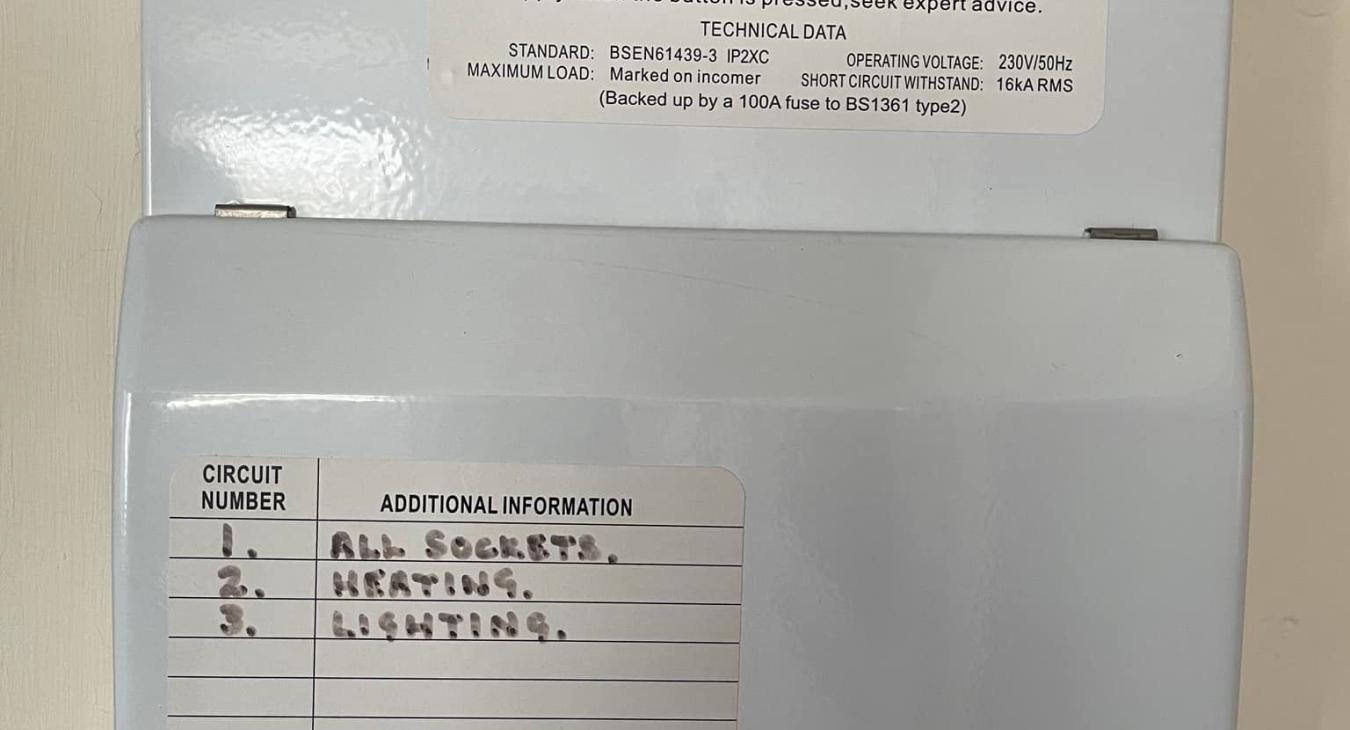
Most Bristol homeowners know where to find their fuse board and many will know that it controls the flow of electricity coming into our homes.
Beyond that, very few have ever been shown what each part of a fuse board does. Here at Allied Electrical Services, we believe that such an important part of your homes electrical system deserves a little attention. Our expert electricians have put together this guide to explain simply and concisely what each part of your fuse board does and how it works to keep you and your family safe.
Fuse board or consumer unit
The first thing to know is how to tell the difference between an older fuse board and a consumer unit fuse board. A consumer unit is the modern, updated version of a fuse board and if you take a look you will see a bank of small switches that toggle off during a fault. An older style fuse board has fuses which must be removed and rewired in the event of a fault. The small fuse wire within must burn out to cut the power and there is a dangerous delay between a fault arising and this occurring. An older style fuse board will not feature any of the safety features which are standard on a consumer unit. Most people will refer to a consumer unit as a fuse board and to keep things simple we will stick to that term throughout this blog. If your Bristol home still has an older fuse board, Allied Electrical Services will be happy to come and take a look and let you know if an upgrade is necessary.
Fuse board parts explained
Let’s now look at the different parts of your fuse board and find out more about what they do:
Main Switch
If there is one part of your fuse board that you should be able to identify, it is the main switch. This controls the flow of electricity from the grid into your home. If the power ever needs to be turned off at your property, whether to allow repairs or in the event of fire or flood, this is the switch you must use.
MCBs
The MCBs or Miniature Circuit Breakers on your fuse board protect your electrical circuits from damage caused by overcurrent events. Overcurrent events can include power surges, overloading of sockets (usually related to extension cords), and loose wires within a socket. The MCBs are the small line of switches you can see on your fuse board, and each protects an individual, named circuit. If an issue is detected on that circuit, the MCB will trip and cut the power. After the problem has been resolved you can simply reset the switch on the MCB to restore power.
RCDs
RCDs (Residual Current Devices) are lifesaving devices and are an essential safety feature of a fuse board. The flow of electricity passes through the RCDs to the MCB circuits and should the RCD trip, power will cease to flow to all other circuits. Whilst an MCB protects your circuits from overload, your RCD protects you from the dangers of electric shock. An RCD can cut the power within milliseconds of detecting a problem and is essential for your safety. If your current fuse board does not feature RCD protection, you should contact your local electrician to install one as soon as possible.
RCBO
RCBO stands for Residual Current Breaker with Over-current and essentially combines the functions of both an MCB an RCD. Providing the same high levels of protection as the individual RCDs and MCBs, you may find RCBOs in their place.
SPD
During a power surge your electrical equipment, such as your TV, computer and washing machine, can be damaged by the excess voltage. A Surge Protection Device (SPD) is the part of your fuse board that protects against this damage. SPDs were not previously fitted as standard but are now required for new installations. Should your fuse board not feature an SPD, in the event of a power surge you could be facing a significant bill to replace your damaged electronics. If you would like to add SPD protection, contact your local electrician who will be happy to advise you.
We hope this has helped you to better understand the parts of your fuse board. If you have any further questions, feel free to contact our friendly electrical team at Allied Electrical Services Bristol. Our fully qualified, NICEIC registered electricians can help with all your fuse board related queries. With 25 years of experience serving our local community in Bristol, we are the electrician you can rely upon. Call us today.










